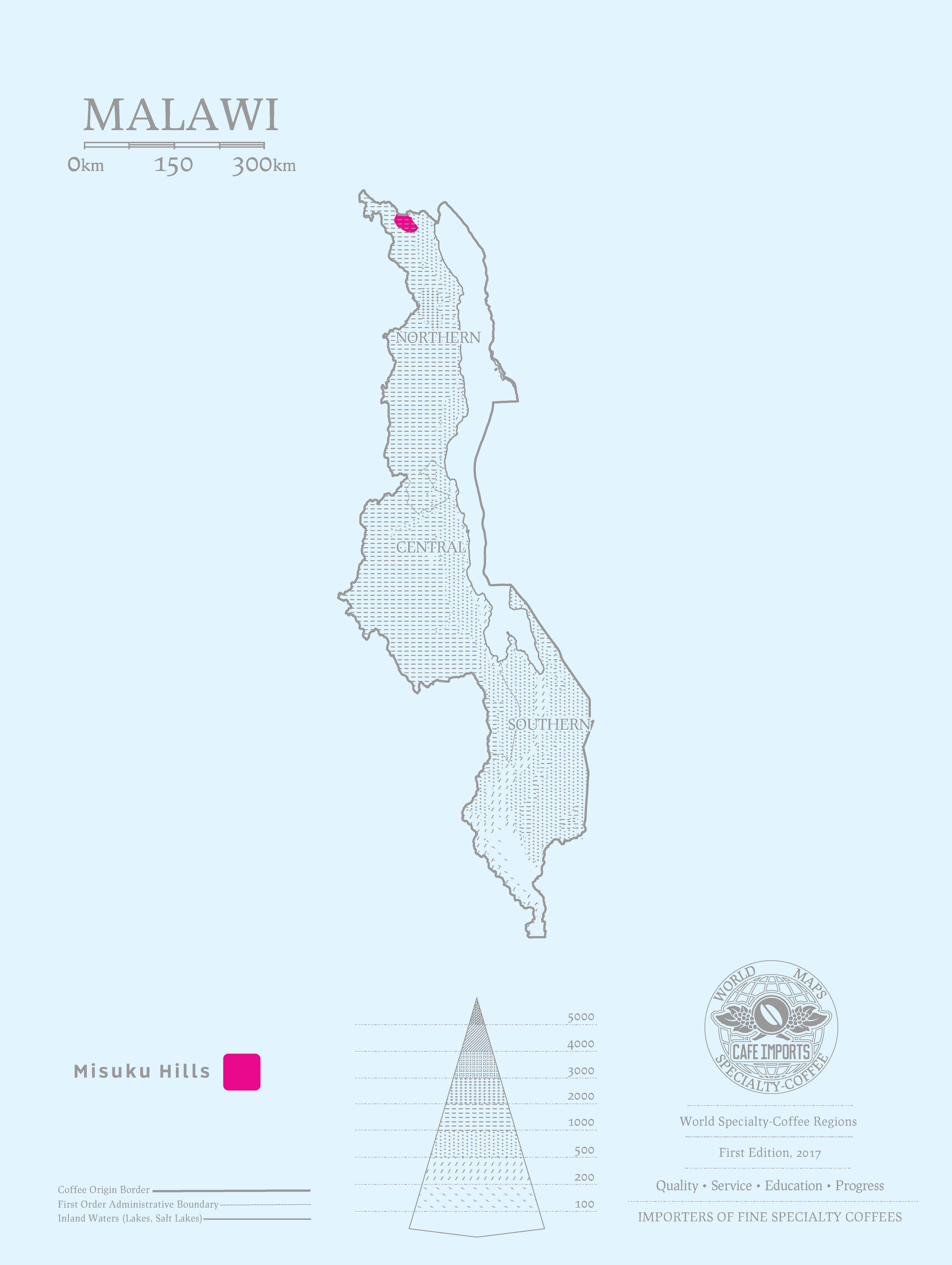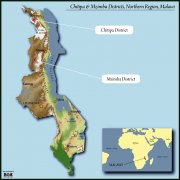Coffee beans and Historical background of the Republic of Malawi there is no unified grading standard for Malawian coffee.

The Republic of Malawi is located in the inland zone of the plateau in south-central Africa. It is one of the most densely populated countries in Africa, with more than 13 million people living in just 118000 square kilometers, 20 per cent of which is water. It can be seen on the map that there is a very large lake to the northeast. It is Lake Malawi, which is also the natural boundary between Malawi and its neighboring countries.
Coffee was introduced to Malawi from the United Kingdom in the late 1800s and peaked in the 1990s, with production of about 70000 bags. The flowering period is from December to February, followed by the harvest from May to September. Usually, all coffee needs to be washed, dried on an elevated bed and then exported to a 60-kilogram jute bag.
Throughout colonial rule, the British owned large coffee plantations and forced locals to work in difficult conditions with little pay. Commercial real estate is concentrated in the Thyolo and Mulanje areas of southern Malawi. After independence, the government established a special coffee organization structure, and in 1971, the small farmer coffee department was organized by the small Farmer Coffee Bureau (SCA). Coffee production declined in the 1980s and 1990s as a result of various factors, including coffee wilt and poor organizational management, and in the mid-1990s, the Government began to pursue more actively the privatization of State-owned enterprises, the goal is to give small farmers the right to operate.
Malawi does not have a unified grading standard, which can be classified by referring to the Kenyan coffee grading system.
Important Notice :
前街咖啡 FrontStreet Coffee has moved to new addredd:
FrontStreet Coffee Address: 315,Donghua East Road,GuangZhou
Tel:020 38364473
- Prev

Coffee
Coffee
- Next

Introduction and Flavor of Kitipa Coffee, the Standard of Malawian production area
Coffee produced in Malawi is rarely distinguished by origin, and coffee producing areas can be regarded as areas delineated for growing coffee, rather than defined by local soil or climate. Chitipa produces several of Malawi's most prestigious coffees. Adjacent to the Songwe River, it is also the natural border between Malawi and Tanzania to the north. This area is also a large-scale Misuku Hills community.
Related
- Beginners will see the "Coffee pull flower" guide!
- What is the difference between ice blog purified milk and ordinary milk coffee?
- Why is the Philippines the largest producer of crops in Liberia?
- For coffee extraction, should the fine powder be retained?
- How does extracted espresso fill pressed powder? How much strength does it take to press the powder?
- How to make jasmine cold extract coffee? Is the jasmine + latte good?
- Will this little toy really make the coffee taste better? How does Lily Drip affect coffee extraction?
- Will the action of slapping the filter cup also affect coffee extraction?
- What's the difference between powder-to-water ratio and powder-to-liquid ratio?
- What is the Ethiopian local species? What does it have to do with Heirloom native species?

